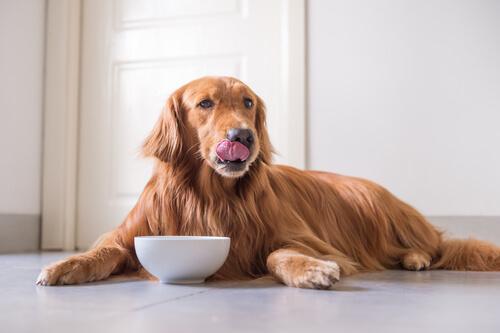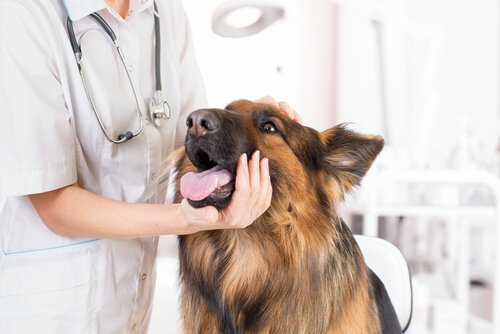4 Healthy Habits for Your Dog's Heart

Dogs, like humans, can have heart problems, especially in their old age. Luckily, there are some simple habits that can help keep your dog’s heart healthy.
Boxers and poodles are especially likely to have heart problems. But any breed can have them, and the real problem is that there aren’t always clear symptoms.
This makes it especially important to be aware of the possible signs, and to adopt healthy habits that can reduce your dog’s risk of heart problems.
4 healthy habits for your dog’s heart
Genetics play a part in your dog’s heart health, but so do things like obesity, which is more in your control. Keep reading to see our list of 4 healthy habits for your dog’s heart!
1. A good diet
A balanced, healthy diet is essential to your dog living a long, happy life. This is especially true when it comes to the heart. A good diet can actually help reduce your dog’s risk of heart problems.
Most dogs eat industrial, processed food. That can be good because it allows you to keep more control over how their protein and nutrient intake. But not all brands are the same, and you need to make sure you choose well.
If you’re going to give your dog this kind of food, you need to factor in its age, breed, and stage of life. A young dog that exercises a lot doesn’t have the same nutritional needs as an old dog that stays at home and sleeps all day.

Animal protein is a key part of giving your dog a heart healthy diet. Many of these processed, store-bought foods have just the right amounts of it.
If you want your dog to have a more natural diet, you should feed it chicken, fish, beef, pork, eggs, and some vegetables (but never onion–it’s toxic for dogs). A balanced diet is truly one of the most important parts of keeping your dog’s heart healthy.
You also need to control how much fat your dog consumes. It’s not just about weight. Fat also plays a part in cholesterol levels and can increase the risk of heart disease.
If your dog already has heart problems, you absolutely have to reduce its salt intake. Sodium increases blood pressure, and that’s not good if its heart is already having trouble pumping enough blood to the rest of its body.
2. Physical activity
Keeping your dog at a healthy weight is the best gift you can give to its heart. But a balanced diet isn’t enough on its own, your dog also needs to do physical activity. Dogs need daily exercise like running or walking to stay healthy.
Of course, you need to tailor that to your dog’s breed and age. But no matter what breed or how old your dog is, they all need at least a little bit of exercise. Taking yours on at least a 30 minute walk every day will be great for you both.
3. Vet check-ups
Along with diet and daily exercise, you also need to get your dog a check-up every so often. Your vet will evaluate your dog’s weight and listen to its heart. They’ll also ask you some questions to see if there are any signs of a heart problem.

For example, if you dog pants a lot when you go on walks or when it’s playing, then that might mean there’s an issue. It could be that its heart is working hard to get oxygenated blood to its muscles, but just can’t keep up. Coughing can also be a sign of a heart problem.
4. Love and affection
Dogs need lots of attention and affection throughout their lives. Loving them and having fun with them helps them live happy, peaceful lives. It has been proven that a dog that doesn’t get enough attention or spends a lot of time alone can start to have anxiety problems. That will absolutely affect its heart.
So, now that you’ve learned some of the healthy habits for your dog’s heart, don’t hesitate to start putting them into practice!
